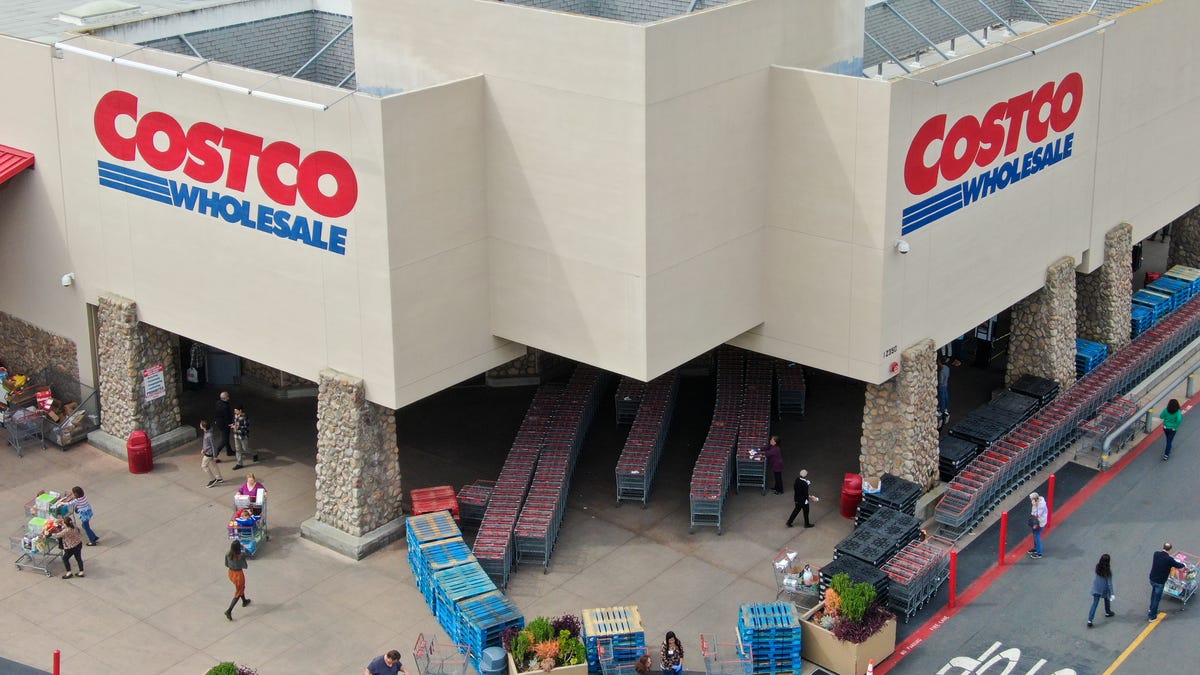Costco DEI Policies Under Fire: Trump's Crackdown & Shareholder Defiance
Is Costco standing firm on its commitment to Diversity, Equity, and Inclusion (DEI) in the face of significant pressure? The retail giant's unwavering stance, even amidst a political climate actively seeking to dismantle such initiatives, signals a powerful commitment to its values and potentially, a strategic business advantage.
The evolving landscape of corporate social responsibility is being reshaped by a clash of ideologies. On one side, we see a growing emphasis on DEI, aimed at creating more inclusive workplaces and fostering equitable opportunities. On the other, there's a pushback, often fueled by concerns about reverse discrimination or perceived political overreach. Costco finds itself squarely in the crosshairs of this debate, and its decisions have significant implications for both its business and the broader corporate world.
A letter sent to Costco CEO Ron Vachris on a recent Monday, highlights a critical point in this evolving corporate climate. The letter was from a group of state Attorneys General. It stated that the company's decision to maintain its DEI policies may be in direct conflict with recent Supreme Court rulings. These developments represent the latest twists in the ongoing saga of how major corporations are navigating social and political expectations.
This dynamic is not a new phenomenon, but the intensity of the scrutiny and the stakes have been amplified in recent years. The actions taken by former President Donald Trump are central to the story. His stated commitment to roll back workplace initiatives related to DEI in both the federal government and the private sector puts considerable pressure on companies, forcing them to choose a path and defend it. Costco, along with a number of other prominent U.S. companies, has made its choice clear, signaling defiance.
Costco's shareholders have demonstrated a clear alignment with the company's existing policies. Shareholder overwhelmingly rejected a proposal. The proposal would have pushed Costco to evaluate the potential risks of maintaining DEI initiatives. At the company's annual meeting, shareholders voted against a proposal. This resistance from shareholders indicates that there is significant support. The shareholders believe the benefits of DEI outweigh any perceived risks.
The company's contributions to political campaigns further illustrate its alignment with certain values. Data shows that Costco predominantly contributed to Democratic congressional and federal candidates, with a significant percentage of total dollars allocated to those campaigns. This financial backing offers a glimpse into the company's political preferences.
The stakes are high. The Trump administration's actions have significant financial and operational repercussions for businesses that find themselves at odds with the former president's policy priorities. The potential for boycotts, regulatory scrutiny, and reputational damage is very real. Costco is responding by doubling down on its DEI efforts.
As a hero to some, Costco has chosen to continue with its DEI programs. The question, as ever, is whether the benefits of DEI will be viewed as outweighing potential costs.
The pressure on Costco is also coming from another front. Some Republican Attorneys General sent a letter to the company, which warned them to reconsider their DEI efforts. The attorneys' concern is that the policies are out of alignment with the changing political climate.
The situation is far from unique. Many businesses are facing a similar set of challenges. How companies navigate these pressures will shape the future of the corporate world.
Several companies have adjusted their strategies. Others are holding firm. These decisions provide a look into the diverse approaches of the corporate environment.
As the political and social pressures escalate, the choices of businesses like Costco are pivotal. They are playing a key role in defining the balance between social responsibility, political alignment, and business goals.
The challenges posed by President Donald Trump's actions aren't the only hurdles that Costco faces. The increase in tariffs by the Trump administration on Chinese goods, for instance, has forced U.S. companies to find methods to protect their bottom lines.
These challenges are varied, and companies must navigate them strategically.
Costco's decision to keep its DEI efforts alive shows a determination to adhere to its values. The company is positioning itself to be able to provide a workplace that is both fair and welcoming.
Here is a table summarizing Ron Vachris's background:
| Category | Details |
|---|---|
| Full Name | Ron Vachris |
| Title | President and Chief Executive Officer, Costco Wholesale |
| Education | Bachelor of Science in Business Administration, Washington State University |
| Career Highlights |
|
| Key Responsibilities |
|
| Notable Achievements |
|
| Reference Link | Costco Official Website - CEO Page |
In his first days in office, President Donald Trump issued a series of executive orders, the objective of which was to bring an end to diversity, equity, and inclusion programs. The efforts of the Trump administration have brought a sharp focus to the actions of corporations.
As more companies are choosing to roll back their DEI programs, Costco remains committed. This contrast indicates a strategic approach to business practices.
The decisions that Costco makes have a big impact, shaping the future of DEI in the business world.
The debate over DEI is complex. The actions of President Trump have brought this discussion to a higher level. These discussions will continue to unfold in the coming years.


